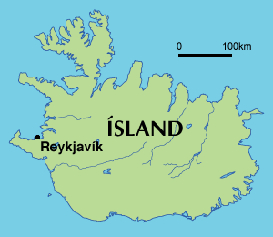Difference between revisions of "Marine Biotechnology in Iceland"
(→Research funding schemes and programmes) |
(→Overarching science strategies, plans and policies) |
||
| Line 14: | Line 14: | ||
* '''Iceland 2020'''<ref name="eng">http://eng.forsaetisraduneyti.is/media/2020/iceland2020.pdf</ref> | * '''Iceland 2020'''<ref name="eng">http://eng.forsaetisraduneyti.is/media/2020/iceland2020.pdf</ref> | ||
| − | * '''Science and Technology Policy 2010-2012 from the Science and Technology Policy Council'''<ref name="vti">www.vt.is/english/</ref> | + | * '''Science and Technology Policy 2010-2012 from the Science and Technology Policy Council'''<ref name="vti">http://www.vt.is/english/</ref> |
* '''The Ocean – Iceland’s Policy''' <ref name="uta">http://eng.utanrikisraduneyti.is/media/Efstabaugi/The_Ocean_Icelands_Policy.pdf</ref> | * '''The Ocean – Iceland’s Policy''' <ref name="uta">http://eng.utanrikisraduneyti.is/media/Efstabaugi/The_Ocean_Icelands_Policy.pdf</ref> | ||
* Iceland’s '''Green Economy Policy''' <ref name="alt">http://www.althingi.is/pdf/Green_economy.pdf</ref> | * Iceland’s '''Green Economy Policy''' <ref name="alt">http://www.althingi.is/pdf/Green_economy.pdf</ref> | ||
Revision as of 14:55, 5 March 2013

|
Go back to: Home > Strategies, Policies and Programmes > European countries
Overarching science strategies, plans and policies
At this time, in 2012, Iceland does not have a dedicated Marine Biotechnology policy, strategy or plan. Iceland’s Science & Technology Policy for the period 2010–2012 develops the science and technology research policy component of the government’s policy for the economy and community as laid out in the National strategic document “Iceland 2020”. The marine research component of this Policy is further developed in The Ocean – Iceland’s Policy which contains a reference to marine biotechnology research as a key focal area. Iceland does not have a specific bio-policy but there is a policy on the green economy, which is partly relevant for biotechnology research issues.
- Iceland 2020[1]
- Science and Technology Policy 2010-2012 from the Science and Technology Policy Council[2]
- The Ocean – Iceland’s Policy [3]
- Iceland’s Green Economy Policy [4]
Research funding schemes and programmes
The National Marine Research Strategy is implemented through the Marine Research Institute which is managed by the Ministry of Fisheries and Agriculture. A database of funded projects will be developed in the future. Other National Research Funding Programmes which have a significant marine research element include:
- The Ministry of Industries and Innovation:
- The Ministry of Fisheries [6] merged in 2012 with the Ministry of Industry, Energy and Tourism and part of the Ministry of Economic Affairs to form the The Ministry of Industries and Innovation (MII). It covers all sectors of ordinary business and economic activity[8].
- The Icelandic Centre for Research, Rannis, also administers funding for basic/academic research as well as for technology development and applied research R&D&I[9].
Research priorities for marine biotechnology research
- Value addition of underutilised materials
- Processing by-products
- New raw materials, such as seaweed
- Bioprospecting and bioactive ingredients
- Marine micro organisms and extremophiles
- Establishment of industrial biotechnology
Strategic documents
English versions of strategic documents regarding biotechnology in Iceland are being developed. Most are still only available in Icelandic. An English draft of the Icelandic Biotech Sector Assessment is available but out of date. A report from 2007 on Biotechnology research policy and effort in Iceland that came out of an FP6 project is available but needs to be updated[10].
Infrastructures and coordination and support capacities / initiatives
- Iceland food and biotech R&D (Matis ltd.) is an independent research institute which strives toward innovation in the food industry, biotechnology and food security. Matis [11] provides consultancy and services to companies in fisheries and agriculture as well as governmental agencies. Currently cooperating in a number of international projects, such as:
- SeaBiotech - FP7-KBBE start-up October 2012
- Macumba – FP7-KBBE
- Taste - SME project
- MicroB3 – FP7
- Bluegenics FP7-KBBE
- Association of Biotech companies defined by the Federations of Icelandic Industries [12]
- University of Iceland – Food Science and Nutrition, Center for System Biology researchers in Nature Biology [13]
- University of Akureyri – Biotechnology[14]
- In 2012, Iceland operates 1 oceanic of 56m (Bjarni Saemundsson) and 1 global vessel from 69,9m (Arni Fridriksson) registered at the European Research Vessels Infobase [15].
- In 2012, France maintains about 1 large marine research equipments registered in the European large Exchangeable instruments database [15].
- Key aquaculture experimental and research facilities in Iceland include
- Experimental facilities (Holar University college)
- Rearing facilities (marine research institute)
Major initiatives
National programme is under construction. A draft in English (Icelandic Biotech Sector Assessment) is available but needs to be updated.
References
- ↑ http://eng.forsaetisraduneyti.is/media/2020/iceland2020.pdf
- ↑ http://www.vt.is/english/
- ↑ http://eng.utanrikisraduneyti.is/media/Efstabaugi/The_Ocean_Icelands_Policy.pdf
- ↑ http://www.althingi.is/pdf/Green_economy.pdf
- ↑ http://www.avs.is
- ↑ 6.0 6.1 http://www.sjavarutvegsraduneyti.is
- ↑ http://www.nmi.is
- ↑ http://eng.atvinnuvegaraduneyti.is
- ↑ http://www.rannis.is
- ↑ http://ec.europa.eu/research/biosociety/pdf/biopolis_iceland_en.pdf
- ↑ http://www.matis.is/english/about/
- ↑ http://www.si.is/english
- ↑ http://english.hi.is/frettir/center_for_systems_biology_researchers_in_nature_biotechnology
- ↑ http://english.unak.is/business-and-science/page/naturalresource
- ↑ 15.0 15.1 http://www.eurocean.org
Disclaimer
This draft country profile is based on available online information sources and contributions from various country experts and stakeholders. It does not aim nor claim to be complete or final, but should be considered as a dynamic and living information resource that will be elaborated, updated and improved as more information becomes available, including further inputs from experts and stakeholders.
